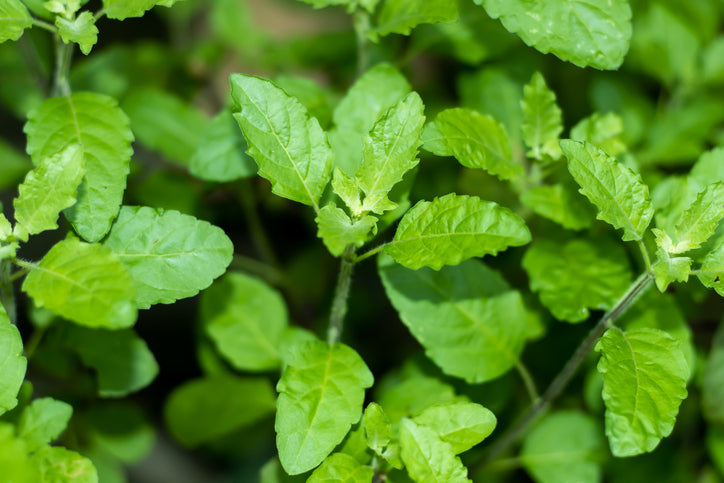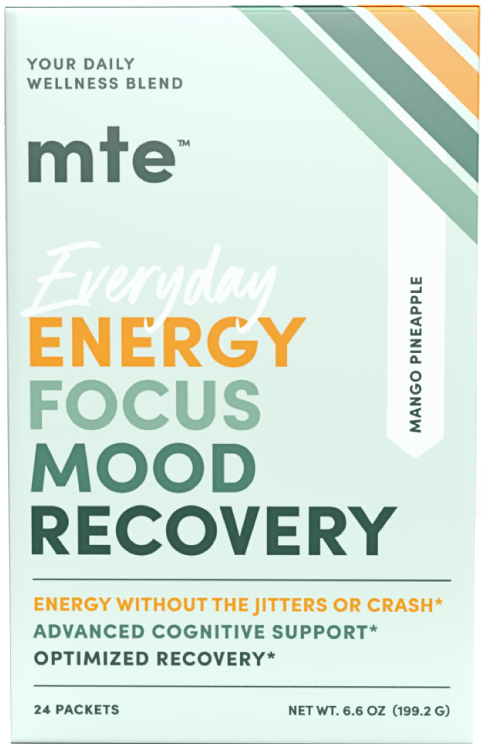
Ditch the Jitters: 5 Best Coffee Alternatives for Energy
Instead of giving us that zen-like focus we all need to be productive, a morning coffee can result in a racing buzz that’s more frantic than focused. It’s the jittery high price you pay for a fleeting moment of alertness. The worst thing about it is that it often ends in a crash.
So, is there a way to switch gears and find caffeine-free energy that keeps your mind sharp and focused without the wild side effect ride?
The answer is yes. You just need to find the right alternative to caffeine for focus that won’t overload your brain.
In this article, we explore the best five coffee substitutes for energy that have just enough kick to support your focus and productivity without sending you on an energy roller coaster.
What’s the Problem With Caffeine?
Caffeine, in moderation, is not the villain it’s often made out to be. In fact, a moderate intake can usher in a host of benefits, including increased alertness, better mood, and a welcome boost to both short-term memory and concentration.
Research has also linked moderate coffee consumption with a reduced risk of chronic conditions like type 2 diabetes, chronic liver disease, and certain types of cancers.
However, the line between just enough and too much caffeine can be surprisingly thin.
The FDA recommends drinking no more than 400mg of caffeine per day, which is four to five cups of coffee. Going over this amount can lead to side effects like jitters, racing heart, anxiety, and disrupted sleep.
However, 400mg is a lot of caffeine, and there’s a good chance you can experience the side effects even if you don’t go near this amount, especially if you consume it all in one sitting.
In addition, some people are more sensitive to caffeine than others. As a result, they might find themselves at the jittery end of a cup of coffee, even at low doses.
To make things even more complicated, our bodies get used to the stimulating effects of caffeine over time. This tolerance buildup can lead us to consume higher doses to recapture the desired benefits, which pushes us into side effect territory.
Because of all these caffeine pitfalls, it’s important to seek a proper coffee alternative that can help us dial back on caffeine without sacrificing its energizing benefits. Let’s explore the best options.
5 Healthy Coffee Substitutes for More Energy and Fewer Side Effects
Ditching coffee is hard. Luckily, you can replace it with something healthier to make quitting easier.
These five healthy coffee substitutes have all the benefits of a warm cup of coffee without the drawbacks. So, let’s see how to get a more sustainable ride to better focus and alertness.
1. MTE (More Than Energy)
MTE is more than just another item on the shelf of healthy energy drink powders. It’s a daily ritual that infuses life into your daily routine to help you get the support you need to feel better and be better.
Instead of giving you a quick fix, MTE uses 11 research-backed ingredients to provide:
- Sustained energy
- Better mood
- Clear focus
- Shield against stress
- Immune system support
- Sleep boost
- Anti-inflammatory support
So, what’s inside MTE that makes it so special?
- Adaptogens like maca and ashwagandha help your body deal with stress so that you can easily glide through the day.
- Nootropics like L-theanine and paraxanthine boost natural energy and sharpen mental clarity to help you tackle everything life throws your way.
- Superfoods like chicory root and spirulina offer a buffet of nutrients to support your body’s well-being.
Now, keep in mind that MTE’s Everyday Blend contains no caffeine. So, this caffeine-free energy booster relies solely on nootropics and adaptogens to provide a steady flow of energy that fuels your days.
And it works. People drinking MTE report feeling more energized and motivated.
Every sip of this wellness companion supports your immediate needs and long-term health. Plus, the benefits stack over time, so you don’t have to worry about building tolerance. In fact, you can easily replace coffee with MTE and transform your daily routine.
2. Magic Mind®
Magic Mind® offers a great alternative to traditional caffeinated drinks with a blend that promotes mental clarity and sustained energy.
This healthy energy shot incorporates nootropics, adaptogens, and functional mushrooms to provide a more balanced energy boost without the abrupt highs and lows associated with coffee consumption.
Here’s what’s inside:
- Adaptogens like ashwagandha, Rhodiola rosea, and turmeric
- Nootropics like L-theanine, Bacopa monnieri, and choline
- Functional mushrooms like lion’s mane and cordyceps
This combination supports focused attention and productivity in a gentle way, without jitters and anxiety.
A shot of Magic Mind contains around 55mg of caffeine, which is equivalent to half a cup of coffee. That stimulates the brain just enough to kick you into the right gear, but the rest of the ingredients ensure you don’t go over the edge.
Want to learn more about this wellness shot? Read our in-depth MTE vs Magic Mind comparison.
3. MUD\WTR®
MUD\WTR® is a vegan coffee alternative that combines organic ingredients with potential health benefits. Each serving contains around 30mg of caffeine.
The core of MUD\WTR benefits come from adaptogenic mushrooms like lion’s mane, known for cognitive support, and Chaga, valued for its antioxidant properties. These offer a steady, grounded source of energy.
MUD\WTR also includes nootropics such as Bacopa monnieri, which may support memory, cognitive function, mood, focus, and well-being. Unlike many caffeinated beverages, this coffee alternative with caffeine promotes balance by offering a gentle boost in energy and focusing on mental clarity and stress management.
With a base that includes masala chai and cacao, it offers a complex and satisfying taste that stands apart from traditional coffee and many alternative energy drinks. That provides a warming and comforting experience with each sip. Looking for more drinks to start your morning without the jitters? Read our comparison of the best adaptogenic coffee alternatives.
4. Yerba Mate
Yerba mate is a traditional South American brew made from the leaves of the Ilex paraguariensis plant. This caffeinated beverage has been used for centuries in countries like Brazil, Argentina, and Uruguay because it can energize the body and promote mood.
Keep in mind that yerba mate contains a similar amount of caffeine per cup like coffee. However, thanks to other compounds like theobromine and theophylline, it offers a smoother, less hectic energy boost.
Beyond energy, yerba mate’s unique nutrient profile contributes to better focus and overall cognitive performance. In addition, theobromine promotes a better mood and prevents overstimulation.
Unlike coffee, which can be acidic and harsh on the digestive system, yerba mate is generally more gentle, making it a great IBS coffee alternative.
5. Green Tea
Many cultures around the world have been drinking green tea for centuries. Its lower caffeine content, paired with many antioxidants, particularly catechins, promotes focus and alertness without the abrupt onset or decline associated with coffee consumption.
That’s because the caffeine in green tea is absorbed more slowly by the body compared to coffee, thanks to its unique nutrient profile. This gradual process helps avoid the sharp spike and fall in energy levels, which makes it a reliable source of sustained energy.
One of the most important ingredients of green tea is L-theanine, an amino acid that promotes relaxation without drowsiness. This amino acid smoothes the rough edges of caffeine to ensure it doesn’t send your brain into overdrive.
If the effects of green tea are too mild for your taste, you can try matcha. This form of green tea is made from finely ground whole tea leaves, which offer a higher concentration of nutrients and caffeine.
Matcha provides a more significant energy boost, but L-theanine maintains a sense of calm and focus.
How to Switch to a Caffeine Alternative for Better Focus
Switching from coffee to a caffeine alternative can be a refreshing change for your mind and body. Whether you’re a casual coffee drinker or rely heavily on that morning cup, these actionable steps can make quitting caffeine more manageable:
- Start by replacing one daily cup of joe with a coffee alternative. Morning is often the best time because it sets a positive tone for the day.
- Increase your water intake to alleviate any withdrawal symptoms and aid in the detoxification process.
- Replace one coffee serving every few days with an alternative to allow your body to adjust without experiencing withdrawal.
- Experiment with different coffee alternatives like MTE, green tea, matcha, or yerba mate to find what resonates with your taste preferences and energy needs.
- It may take time for your palate and body to adjust to the new flavors and caffeine levels, so give yourself time.
- Maintain your coffee ritual by preparing your caffeine alternative in a special mug.
- Pay attention to how your body responds to the change. If you experience headaches or irritability, slow down the transition pace.
Make the Healthy Choice With MTE
Drinking too much coffee can lead to anxiety, jitters, upset stomach, and many other side effects. That’s why many people seek caffeine alternatives that provide sharp focus and a sustained wave of energy to support their daily needs.
The best coffee alternatives include MTE, Magic Mind, MUD\WTR, yerba mate, and green tea.
However, MTE stands out as a healthy wellness powder that can boost your immediate needs and provide long-term support for a more fulfilled life.
Try MTE to say goodbye to jitters and caffeine crashes and hello to a more balanced and energized life.



